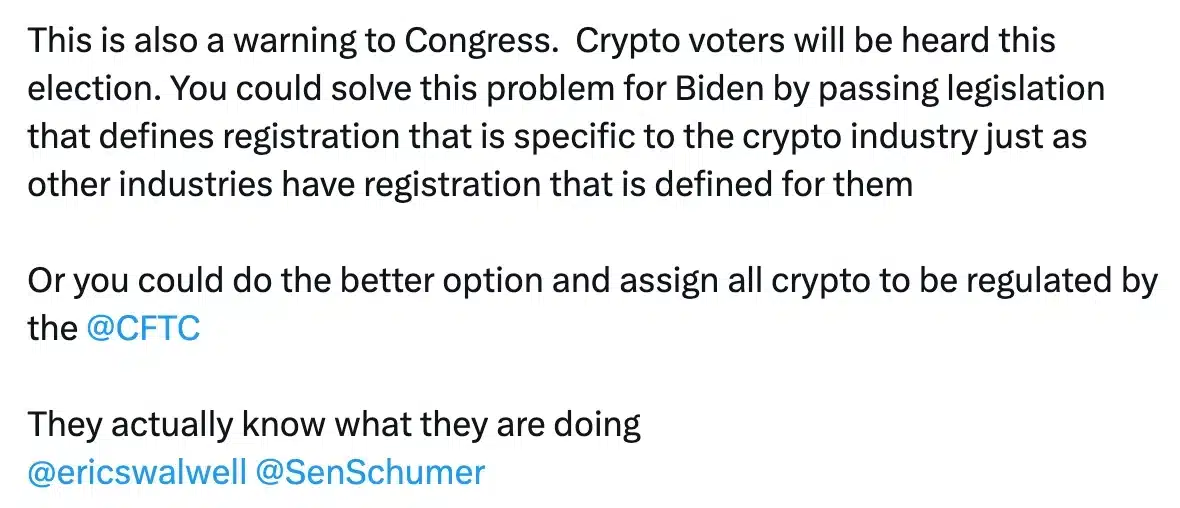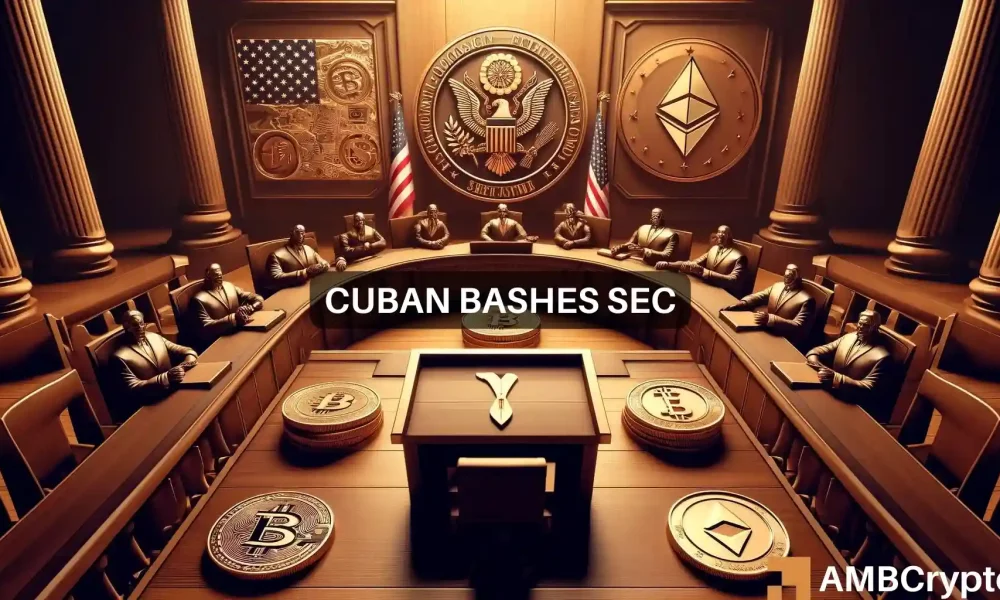- SEC-crypto clashes affect election dynamics, industry growth, and voter sentiments.
- Trump’s and Biden’s crypto stances shift support among voters, revealing a political divide.
The upcoming United States election appears to have a unique dynamic, notably due to the ongoing regulatory battles between the Securities and Exchange Commission (SEC) and crypto entities.
In contrast to previous years, 2024 is making headlines due to ongoing SEC scrutiny over firms like Ripple [XRP], Uniswap [UNI], Binance [BNB], Coinbase, Robinhood, and others.
Mark Cuban’s insights
Delving deeper into the matter, crypto maximalist Mark Cuban responded to Donald Trump’s newfound support for cryptocurrencies, foreseeing their significant impact on the upcoming election. He said,
“If @joebiden loses, there is a good chance you will be able to thank @GaryGensler and the @NewYork_SEC.”
This highlights Cuban’s concerns about potential risks to the crypto industry development and America’s global image.
Criticizing SEC Chair Gary Gensler for neglecting investor protection, he noted,
“Gensler HAS NOT PROTECTED A SINGLE INVESTOR AGAINST FRAUD.”
Cuban believes that Gensler’s actions have significantly hindered the operations of legitimate crypto companies. This has resulted in the potential closure of numerous businesses and countless entrepreneurs.
Reflecting a shared viewpoint, Hayden Adams, Uniswap’s CEO, in a separate interview with the “Bankless” podcast, noted,
“The SEC is essentially taking very aggressive stances and basically trying to shut down crypto.”
Should Congress step in?
Trump’s openness to crypto donations contrasts Biden’s resistance, shifting crypto voters’ support towards Trump.
Remarking on the same, Cuban noted,


Source: Mark Cuban/X
Needless to say other execs including Jake Chervinsky, chief legal officer of Variant in a recent stream on “Unchained”, shed light on the disagreement between the SEC and Coinbase and claimed,
“I think it really is time for Congress to step in and decide what the law should be instead of leaving us all in this sort of haze of regulatory uncertainty.”


